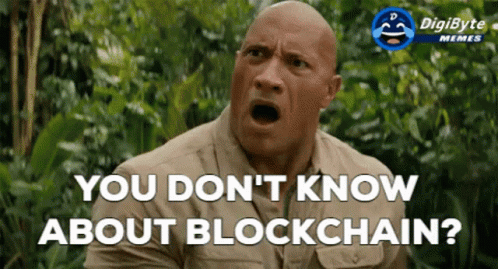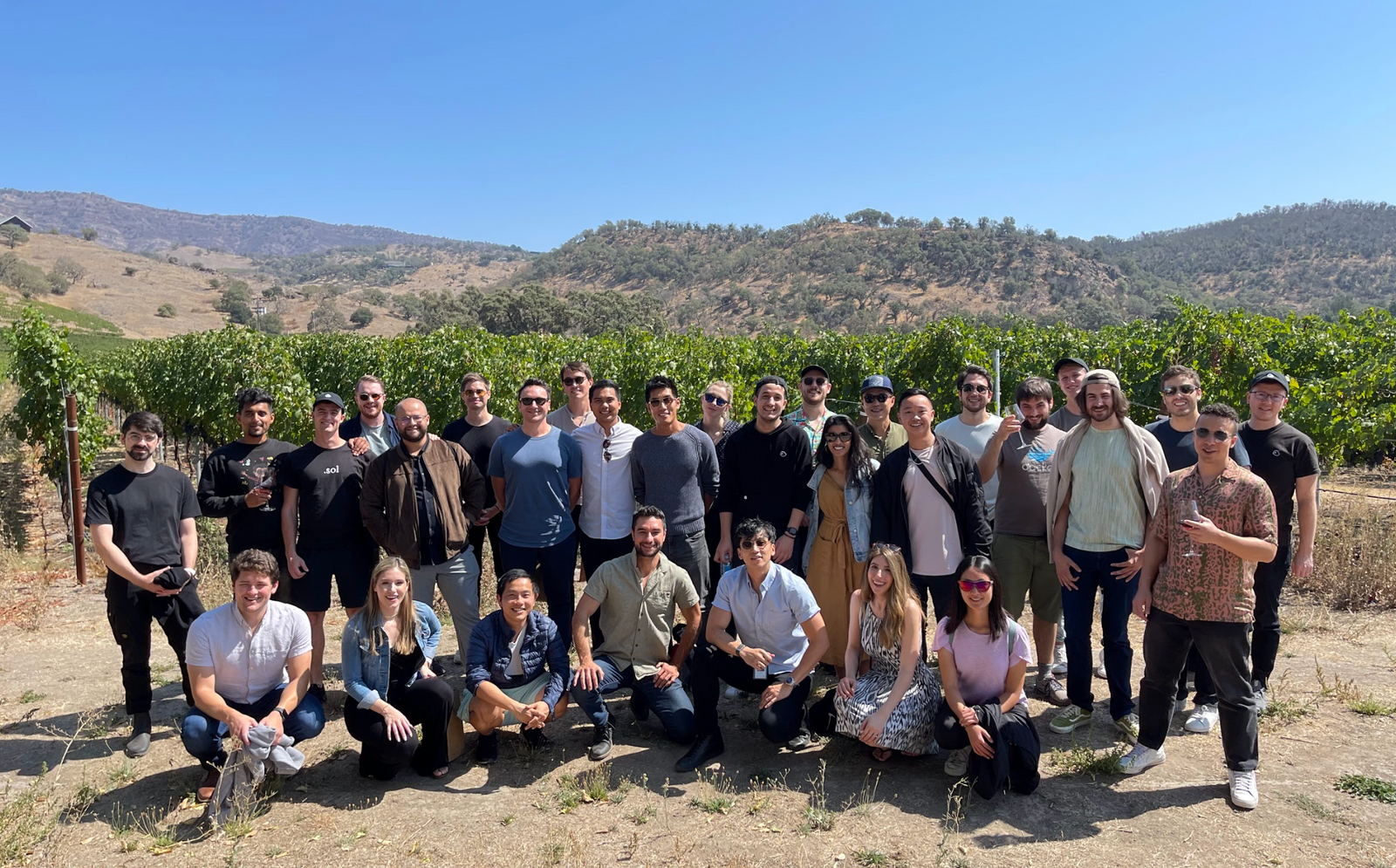web3 is one of the most inviting ecosystems I’ve ever witnessed

It’s Spring 2021. I’m visiting family. Covid is still in full swing. My brother-in-law is flipping out about a series of bizarrely named cryptocurrencies. He’s checking his dashboards every 5 mins. It’s driving me nuts. I’m currently Director of Engineering at a seed-stage cancer-tech company. I’m working pretty intensely to get our first iteration of our app out into the wild. Meanwhile, my brother-in-law is still raving about obscure-acronym-coin. Like seriously raving. It’s really disrupting my flow.
Finally, after a few deploys, we’re ready for launch tomorrow. I look up from my laptop. “What’s all this crypto rage about? I thought this was so 2016. Isn’t everyone over it by now?” My brother-in-law, a seasoned finance professional, begins a rant about decentralized networks, nodes, applications, shards, proof-of-work vs. proof-of-stake. Hold up, hold up, hold up, why is the finance guy using software jargon? I’m pretty shook. I thought this was my domain. These are my vocab words. I didn’t even realize software had anything to do with cryptocurrencies.

This evening kicked off months of reading whitepapers and blogposts supplied by my brother-in-law, watching crypto Youtube videos instead of Netflix, talking to crypto-curious friends, doing a Cryptozombies tutorial, talking to a bunch of crypto founders and enthusiasts, and finally just sending my resume to a sketchy web3jobs@ email address. Here’s what I learned:
I learned that web3 is one of the most inviting ecosystems I’ve ever witnessed.
Unlike web2, there are few, if any, experts in the space. As a result, web3 folks are generally welcoming to new blood. They’re always eager to pitch what they’re working on. They’re eager to hear what you are working on, and they’re constantly looking for synergies. In my year in web3, I’ve been to a couple of hacker houses and meetups, and each time I walk away with an assortment of twitter followers, telegram handles, and, yes, good old-fashioned phone numbers. What’s even cooler is that you run into people again and again, and they actually say hi!

I learned that I have a lot to learn. And that’s ok.
Like I said, there are few know-it-alls in web3 because it’s truly impossible to know it all. The ecosystem is constantly changing and new concepts are regularly being released, so even veterans are always learning something new. I’m totally comfortable saying - “I don’t know” because there are a handful of others who fall into the same camp. Oftentimes, people are eager to teach you what they do know. And when in doubt, Youtube is your friend. There are SO MANY online tutorials. As people figure it out, they share what they’ve learned. There is this mentality of wagmi or “we’re all gonna make it” which the ecosystem truly embodies. It’s really beautiful to witness and be a part of.

I learned that my experience still matters.
I often hear people say “I have no idea what crypto is. I’m not qualified to work in crypto.” I cannot emphasize how false I think that sentiment is. Because the industry is so new, to help the technology become more mainstream, every experience and every skill set it helpful. For me personally, my mid-size startup experience has come in really handy. My emphasis on user experience, focus on security and reliability, and desire to build stable integrations with partners has fit right into Phantom as we strive to build a friendly, trustworthy web3 wallet.
I learned that I can still help people in web3.
Impact has personally been important for me in all my career choices. That’s why I’ve always worked in healthcare. I avoided all conversations about crypto because I thought the whole point was to help people get rich. I was wrong.
By working in web3, you are building a decentralized and fair internet where users, not centralized corporations, are in control and can profit. I can go on for hours about why this is amazing for society, but just know that it’s not all dog coins and degen traders. The real world applications of blockchain technologies will impact every industry in every corner of the globe, and your voice matters in defining the direction we are headed.
I learned that there is still hubris about working in web3 vs web2
I’ll be honest. There is a general sentiment among web3 folks that they know more than people working in traditional web2. We feel that we have some secret oracle of knowledge that web2 folks couldn’t possibly understand. In fact, we call these folks “normies.” TLDR; that’s not cool. We need to be more inclusive of the skeptics. How else can we build a better system if we don’t listen to the criticisms and invite the critics into the conversation?
I learned that women and non-binary folks aren’t being factored into the equation
Alright, let’s get to the elephant in the room. We are a minority in web3. There are a dozen theories around why. I won’t hypothesize too much in that department. I’ll focus on how we can solve this problem going forward. If you’re reading this and you are non-binary or a woman, please do not shy away from crypto. Your voice and perspective is needed now more than ever. I’ll say that again. We need your voice. The industry is so nascent. There are a million directions it can go, and we need you to join the movement and make sure that your communities benefit from these technologies. “Oh, but I don’t understand what crypto is?” It doesn’t matter. Very few people truly do.
What’s important is that you’re eager to learn about it, call out what does/does not resonate with you, and push web3 projects to be inclusive of your communities. The only way we can truly democratize the internet is if you are a part of that democracy, else we will only build for a subset of folks.

I learned that Phantom was the team for me
Hopefully by now I have convinced you to watch at least one youtube video about bitcoin. If you’re convinced, now you’re probably wondering - where the hell do I even start? Here are a few resources that helped me enter the rabbit hole:
- https://crypto.preethikasireddy.com/
- https://cryptozombies.io/
- https://www.youtube.com/c/Finematics?app=desktop
Figuring our where to start is hard, picking a team to work with, that’s even scarier. As a crypto newb, risk-averse, 30-something, self-taught engineer with loads of imposter syndrome, Phantom was the perfect team for me to walk into. Here’s why it has worked out for me so far.
Wallets are the gateway to crypto. You need one to interact with the entire ecosystem - from buying a coin or NFT, to trading assets, to playing a game. So metaphorically, this was the product for me to learn more about the ecosystem.
The team is incredibly smart and ruthlessly humble. I cannot function in high ego environments, especially when I’m new to an industry. All of my teammates are willing to help, never judgmental and always willing to roll up their sleeves alongside you. Kindness is in our DNA.
This team has a strong listening culture. I always feel comfortable speaking my mind at Phantom, and I feel heard. And it works vice versa. I make an active effort to listen to my teammates and really hear them out.
The team is well-funded and has strong leadership. Yes, this is a startup. Yes, we hustle. But unlike many other startups, we are financially stable with substantial runway, and we are a team of planners. Fire drills come up, but we follow product processes to mitigate the chaos. We set company goals, set team OKRs, brainstorm projects, prioritize them, and estimate the work. Of course there’s always room to improve these processes, but this level of structure gives me a happy place of focus while crypto twitter is always going bananas.
This team has a front row seat to what is happening in web3. Because we’re a wallet, we are actively trying to integrate with other dApps in the space and find meaningful partnerships. And you can get involved in the conversations that intrigue you the most and work on products you feel most passionate about.
So if you’re looking for a creative, fast-paced, nurturing team with tentacles across the crypto ecosystem, Phantom could be the place for you. I know it has been for me.
